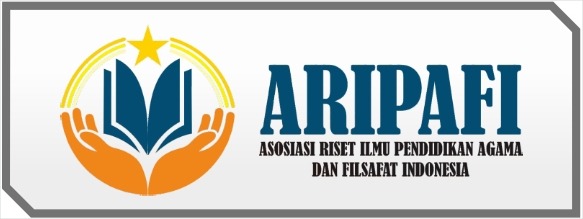A Comparative Study of Children's Character Education Methods According to the Thinking of Zakiah Darajat and Thomas Lickona
DOI:
https://doi.org/10.61194/ijis.v1i3.98Keywords:
Character Education, Zakiah Daradjat, Thomas LickonaAbstract
The aim of this study is to compare the views of Zakiah Daradjat and Thomas Lickona on the concepts of Islamic and Western character education. This research uses library research methods, which involve analysis of literature and previous research. The research results show that even though they come from different traditions, they both have similar goals, namely developing a generation that has good character and responsibility. Zakiah Daradjat emphasized the importance of human relationships with God and a spiritual approach to character formation. The focus involves understanding religion, developing sincerity, and awareness of responsibility towards God. On the other hand, Thomas Lickona emphasizes cultural and universal values in character education. He is vocal about defending universally recognized values, such as honesty, fairness, and respect, in everyday life. His thinking focuses on implementing character values in real action and creating individual awareness of their responsibilities towards themselves, others, and society.
References
Abrams, L. R., & Berkman, L. F. (2023). Quantifying the Contribution of Work Characteristics to Educational Disparities in Health-Induced Work Limitations. The Journals of Gerontology. Series B, Psychological Sciences and Social Sciences, 78(11), 1957–1964. https://doi.org/10.1093/geronb/gbad112 DOI: https://doi.org/10.1093/geronb/gbad112
Amerman Goerdt, L., Blaalid, B., Elswick, S. E., Johnson, D. H., Delavega, E., Kindle, P. A., & Granruth, L. B. (2019). Teaching Characteristics and Student Satisfaction: Impact on Social Work Students’ Interest in Policy. Journal of Social Work Education, 55(4), 767–776. https://doi.org/10.1080/10437797.2019.1611512 DOI: https://doi.org/10.1080/10437797.2019.1611512
Fatimah. (2017). Evaluation on Training Program of Integrating Character Education in Civics Education for the Teachers Learning Community. Advances and Social Sciences, Education and Humanities Research. DOI: https://doi.org/10.2991/seadric-17.2017.37
Handayani Tyas, E., & Naibaho, L. (2020). Building Superior Human Resources through Character Education (Vol. 11864, pp. 11864–11873).
Jacobs, J. C. G., Van Luijk, S. J., Van Der Vleuten, C. P. M., Kusurkar, R. A., Croiset, G., & Scheele, F. (2016). Teachers’ conceptions of learning and teaching in student-centred medical curricula: The impact of context and personal characteristics. BMC Medical Education, 16(1). https://doi.org/10.1186/s12909-016-0767-1 DOI: https://doi.org/10.1186/s12909-016-0767-1
Khechine, H., & Lakhal, S. (2018). Technology as a double-edged sword: From behavior prediction with UTAUT to students’ outcomes considering personal characteristics. Journal of Information Technology Education: Research, 17, 63–102. https://doi.org/10.28945/4022 DOI: https://doi.org/10.28945/4022
Kozikowski, A., Morton-Rias, D., Puckett, K., Jeffery, C., Mauldin, S., & Goodman, J. (2023). The association of physician assistant/associate demographic and practice characteristics with perceptions of value of certification. BMC Medical Education, 23(1). https://doi.org/10.1186/s12909-023-04215-2 DOI: https://doi.org/10.1186/s12909-023-04215-2
Mil, S. (2017). The Effectiveness of the Implementation of Character Education (An Evaluation Research in State Kindergarden. South Jakarta, 58, 409–415. https://doi.org/10.2991/icece-16.2017.72 DOI: https://doi.org/10.2991/icece-16.2017.72
Saputro, J. D., & Murdiono, M. (2020). Implementation of Character Education through a Holistic Approach to Senior High School Students. International Journal of Multicultural and Multireligious Understanding, 7(11), 460–470.
Syarifa, S., & Casmana, A. R. (2020). The policy of education based on character values for the best quality of education “an analysis of the zoning system policy imposed by ministry of education and culture in Indonesia.” Universal Journal of Educational Research, 8(8), 3423–3429. https://doi.org/10.13189/ujer.2020.080816 DOI: https://doi.org/10.13189/ujer.2020.080816
Assidiqi, M. (2021). Internalisasi Pendidikan Karakter Thomas Lickona Dalam Pembelajaran Ips Ditingkat Sekolah Dasar (Sd) Pada Masyarakat 5.0. Proceeding Umsurabaya.
Azizah, M., & Fauzi, F. (2022). Pendidikan Karakter Dalam Pembaruan Pendidikan Islam (Studi Atas Pemikiran Azyumardi Azra). Edukasi Islami: Jurnal Pendidikan Islam, 11(03). https://doi.org/10.30868/ei.v11i03.2559 DOI: https://doi.org/10.30868/ei.v11i03.2559
Damariswara, R., Wiguna, F. A., Hunaifi, A. A., Zaman, W. I., & Nurwenda, D. D. (2021). Penyuluhan Pendidikan Karakter Adaptasi Thomas Lickona di SDN Gayam 3. Jurnal Pengabdian Masyarakat Pendidikan Dasar, 1(1). DOI: https://doi.org/10.29407/dedikasi.v1i1.16057
Djafar, H. (2017). Studi Komparasi Konsep Pendidikan dalam Keluarga menurut Zakiah Daradjat dan Ki Hajar Dewantara. Jurnal Ilmiah AL-Jauhari: Jurnal Studi Islam Dan Interdisipliner, 2(2). https://doi.org/10.30603/jiaj.v2i2.675 DOI: https://doi.org/10.30603/jiaj.v2i2.675
Hikmasari, D. N., Susanto, H., & Syam, A. R. (2021). Konsep Pendidikan Karakter Perspektif Thomas Lickona dan Ki Hajar Dewantara. AL-ASASIYYA: Journal Of Basic Education, 6(1). https://doi.org/10.24269/ajbe.v6i1.4915 DOI: https://doi.org/10.24269/ajbe.v6i1.4915
Kurnia, R., & Sulfia, M. (2018). Konsep Pendidikan Karakter dalam Perspektif Pemikiran Zakiah Daradjat. FITRA.
Purwanti, D. (2017). PENDIDIKAN KARAKTER PEDULI LINGKUNGAN DAN IMPLEMENTASINYA. DWIJA CENDEKIA: Jurnal Riset Pedagogik. https://doi.org/10.20961/jdc.v1i2.17622 DOI: https://doi.org/10.20961/jdc.v1i2.17622
Puspytasari, H. H. (2022). Peran Keluarga dalam Pendidikan Karakter bagi Anak. Jurnal Pendidikan Islam, 6(1). DOI: https://doi.org/10.32528/tarlim.v1i2.1708
Rahma, A. (2019). METODE PENDIDIKAN KARAKTER ANAK USIA DINI (Studi Komparasi Pemikiran Zakiah Daradjat Dan Thomas Lickona). Jurnal Kajian Anak (J-Sanak), 1(01). https://doi.org/10.24127/j-sanak.v1i01.14 DOI: https://doi.org/10.24127/j-sanak.v1i01.14
Rodliyah. (2015). Pendidikan pesantren sebagai alternatif pendidikan nasional di era globalisasi. Fenomena.
Royes, N., Husni, M., & Ibrahim, I. (2019). Studi Komparatif: Implementasi Pendidikan Karakter di MI Swasta Se-Kecamatan Alang-Alang Lebar Kota Palembang. JIP Jurnal Ilmiah PGMI, 5(2). https://doi.org/10.19109/jip.v5i2.3465 DOI: https://doi.org/10.19109/jip.v5i2.3465
Samho, B. (2015). Pendidikan Karakter dalam Kultur Globalisasi: Inspirasi dari Ki Hadjar Dewantara. MELINTAS. https://doi.org/10.26593/mel.v30i3.1447.285-302 DOI: https://doi.org/10.26593/mel.v30i3.1447.285-302
Sugiyono. (2018). Prof. Dr. Sugiyono. 2018. Metode Penelitian Kuantitatif, Kualitatif, dan R&D. Bandung: Alfabeta. Prof. Dr. Sugiyono. 2018. Metode Penelitian Kuantitatif, Kualitatif, Dan R&D. Bandung: Alfabeta.
Utami, F. (2021). Pengasuhan Keluarga terhadap Perkembangan Karakter Disiplin Anak Usia Dini. Jurnal Obsesi : Jurnal Pendidikan Anak Usia Dini. https://doi.org/10.31004/obsesi.v5i2.985 DOI: https://doi.org/10.31004/obsesi.v5i2.985






